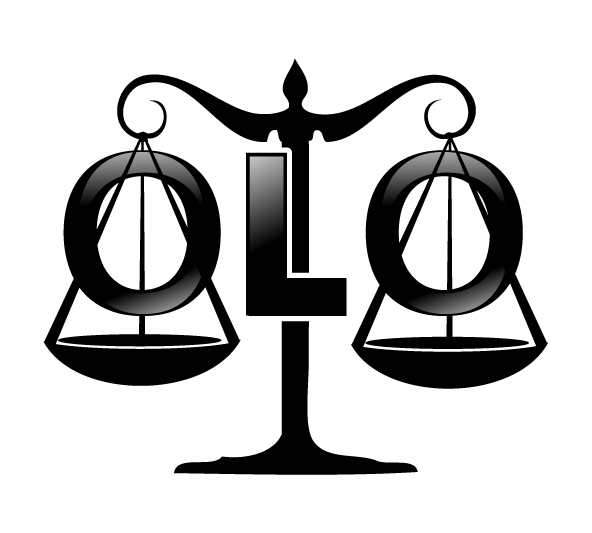Estate plans consist of legal documents outlining your wishes and instructions, which serve as a guide for your family members and the court system to follow. They prevent confusion, limit conflicts, and provide clarity and guidance. Estate planning isn’t just for the wealthy; it’s for anyone who wants to protect their assets and leave a legacy. It is always advisable to consult with a qualified Florida estate planning attorney who is knowledgeable of estate laws in your state.
The importance of Estate Planning
There are several reasons why estate planning is important. Having an estate plan allows you to have control over the distribution of your assets. Unless you have an estate plan, the court will divide your assets for you, which might not match what you wanted. It is possible to ensure your loved ones receive the items you intend for them to receive by creating a well-thought-out estate plan.
In addition, estate planning can minimize taxes and expenses. With proper planning, you can take advantage of tax-saving strategies and ease your beneficiaries’ financial burdens. As part of estate planning, you can also name guardians for minor children, designate healthcare proxies, and make important medical decisions.
Finally, estate planning gives you peace of mind. Knowing that you have taken the necessary steps to protect your family and secure your legacy gives you a sense of relief and comfort. Your wishes will be known and respected, even when you are no longer able to communicate them.
Common Misunderstandings About Estate Planning
Many individuals don’t take action when it comes to estate planning because of common misconceptions. One of the most common misconceptions is that estate planning is only for the wealthy, which simply isn’t true. Regardless of your financial status, estate planning is for you. Irrespective of the value of your assets, it is about protecting them and making sure they are distributed properly.
Another misconception is that estate planning is a one-time event. In truth, estate planning is an ongoing process that should be regularly reviewed and updated. Life circumstances change, and so should your estate plan. Births, deaths, marriages, divorces, and changes in financial circumstances can all impact your plan. Regularly reviewing your estate plan ensures that it remains relevant and effective.
Lastly, some people believe that estate planning is only for the elderly. However, accidents and unexpected illnesses can occur at any age. It is essential to have an estate plan in place, regardless of your age or health status. By planning ahead, you can protect yourself and your loved ones in case the unexpected happens.
The 5 Essential Estate Planning Documents
-
Last Will and Testament: A last will and testament is a legal document that outlines how you want your assets to be distributed after your passing. It allows you to name an executor who will be responsible for carrying out your wishes and ensures that your assets are distributed according to your instructions. Without a will, the court will determine how your assets are divided, which may not align with your intentions.
- Revocable Living Trust: A revocable living trust is a legal arrangement that allows you to transfer your assets to a trust while you’re still alive. You can serve as the trustee and maintain control over your assets during your lifetime. Upon your passing, the assets in the trust are transferred to your beneficiaries without going through probate, which can be a time-consuming and costly process.
- Durable Power of Attorney: A durable power of attorney is a document that grants someone the authority to make financial decisions on your behalf if you become incapacitated. It ensures that your financial affairs are taken care of and allows your chosen agent to manage your assets and pay bills on your behalf.
- Healthcare Power of Attorney: A healthcare power of attorney, also known as a medical power of attorney or healthcare proxy, designates someone to make medical decisions for you if you are unable to do so yourself. This document ensures that your healthcare wishes are respected and that someone you trust is making decisions on your behalf.
- Living Will: A living will, also known as an advance healthcare directive, is a document that outlines your wishes regarding end-of-life medical treatment. It provides guidance to your healthcare providers and loved ones regarding your preferences for life-sustaining treatment, organ donation, and other medical interventions.
Why You Need An Estate Planning Attorney
An estate planning lawyer helps individuals create a comprehensive plan for the management and disbursement of their assets, both during their lifetime and after their passing. Here are some key ways an estate planning lawyer can assist people:
- Drafting Wills: Estate planning attorneys can assist you in creating a legally sound and customized will that specifies your wishes regarding asset distribution and guardianship for minor children.
- Establishing Trusts: Trusts allow you to transfer assets to beneficiaries while controlling how and when they are distributed. An attorney can assist in establishing different types of trusts to meet your specific goals.
- Providing Tax Planning: Estate planning lawyers are well-versed in the complexities of estate and gift tax laws. They can help you and your heirs minimize tax liabilities through strategies such as gifting, generation-skipping transfers, and charitable planning. They can also help protect your assets from potential estate taxes.
- Designating Beneficiaries: An attorney can guide you in designating beneficiaries for retirement accounts, life insurance policies, and other assets through beneficiary designations or payable-on-death provisions. Through this method, your assets are transferred directly to your chosen beneficiaries outside of probate.
- Planning for Incapacity: An estate plan should include provisions for managing your financial and medical affairs if you become incapacitated. An estate planning lawyer can assist in drafting durable powers of attorney, healthcare proxies, living wills, and other documents that appoint trusted individuals to make financial and medical decisions on your behalf.
- Assisting with Probate and Estate Administration: When a loved one passes away, an estate planning lawyer can guide the appointed executor through the probate process. They can ensure that assets are properly distributed, help navigate any legal challenges or disputes, and provide guidance on estate administration duties.
- Updating and Reviewing Estate Plans: Your estate plan should be periodically reviewed and updated to reflect changes in your personal circumstances, laws, or goals. An attorney can assist in keeping your estate plan up to date and responsive to any changes in your life or the applicable legal landscape.
By working with an estate planning lawyer, you can tailor your estate plan to meet your unique needs, ensure your assets are protected, provide for your loved ones, and streamline the probate process for them. It is recommended to consult with an experienced estate planning lawyer who can provide personalized advice and help you create an estate plan that aligns with your goals and priorities.
Trust O. Reginald “Reggie” Osenton To Protect Your Legacy
If you’ve been contemplating the idea of creating a will and/or a trust, it’s important that you do so with a qualified estate planning attorney who can help you set your affairs in order and provide a peace of mind for you and your family. At Osenton Law, P.A. our lead attorney O. Reginald “Reggie” Osenton has over 33 years of experience helping clients protect their assets and loved ones, and he can help you do the same! At Osenton Law we offer affordable, predictable fee arrangements so there are never surprises. Call today for a Effective Strategy Meeting!

